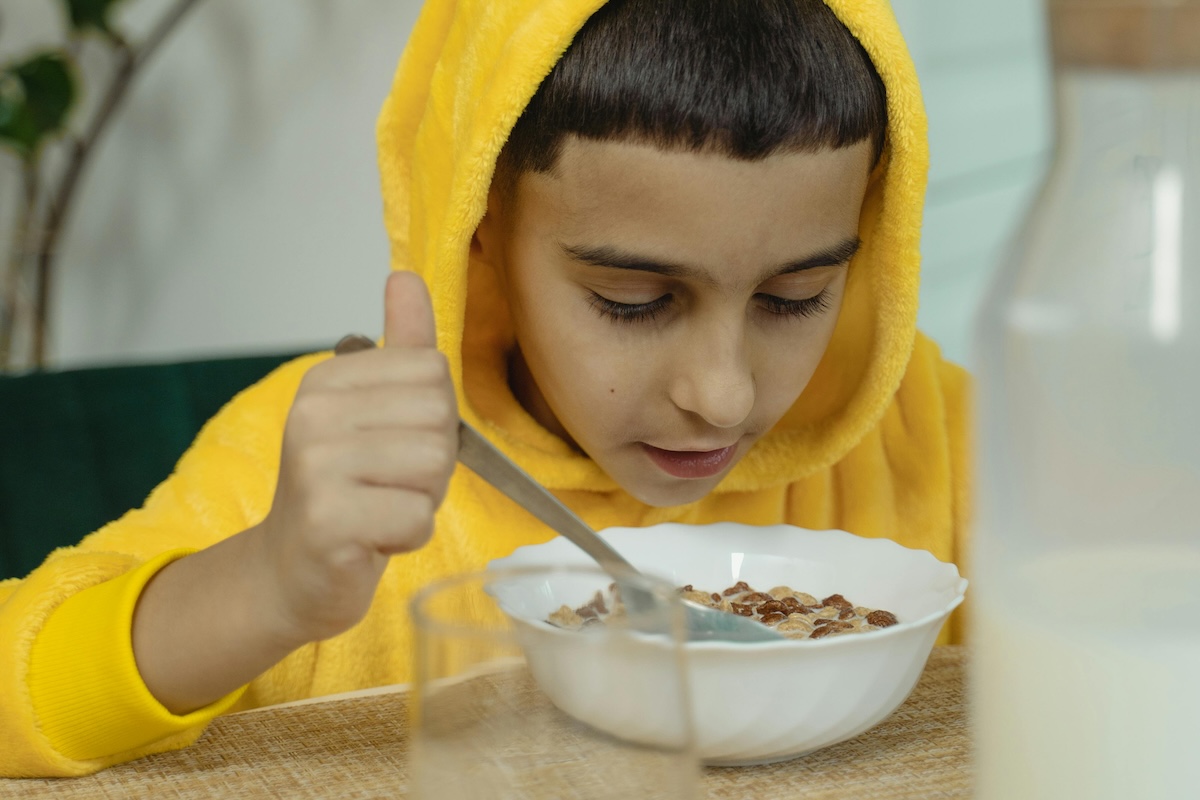Despite following the guidance of Solid Starts and other professionals since her birth, I have a 20-month-old who barely eats. She’s subsisting on milk (which I only allow at mealtime) and a few bites of food here and there (mainly bread or pasta, or snacks when we’re out and about). She won’t eat fruit unless it’s freeze-dried (I know this is okay, but even then it’s not a lot) and picks around all vegetables.
This is by far the most stressful part of parenting for me. When I brought it up to my pediatrician, she said since she’s growing normally it’s fine, that I just need to make sure she’s taking vitamins. You’ve written that vitamins don’t really work, which has left me really stressed-out. I understand that she’s somehow getting the calories she needs, but I feel like she’s not getting the proper nutrition. What do I do? Also, as you wrote in your Halloween candy Q&A, exposure to a variety of foods as children is important. Is she doomed to become a picky adult? Thank you!
—Fretting over food
First of all: please let yourself off the hook a bit. Some kids are very picky — it sounds like yours is one of them — and in many cases, there just isn’t anything you did to cause it or can really do to change it. The internet (and I will say I’m sure I’m guilty of being part of this, as much as I try not to) can make it seem like if only you do this right, you’ll produce a kid who eats. It’s true that there are (limited) evidence-based ways to decrease picky eating. But the effects are mostly small, and there is no magic way to get a kid who eats a lot of different stuff. I have thoughts below, but most importantly, I would try hard to give yourself some grace. It’s enough to worry about your kid without worrying that you are doing it wrong.

To the specifics… What kids need to grow normally is (a) enough macronutrients (protein, fat, carbs) and (b) sufficient vitamins and amino acids. There are a lot of different ways to deliver a diet that has these things. The fact that your child is growing normally (which is great! Something to celebrate!) suggests she’s getting enough calories. Your pediatrician is recommending a vitamin for good reason — when people eat really restrictive diets, they can end up vitamin-deficient. So while most kids, even picky kids, get the vitamins they need, in this case a vitamin makes sense (and as I’ve said before, there aren’t downsides to vitamins, just questions about the size of the upside).
Will she be a picky adult? Maybe. Some people are. There is a relationship between the foods people eat as children and those they like as adults. Your child is probably more likely than others to be a picky adult, but it’s not perfectly predictive. Also, I’d urge you to think about whether that is really something it is worth spending time worrying about now.
The bottom line here is that while I completely understand why you’re worried and why this is stressful, it is largely out of your control, and — stepping back — there isn’t any medical worry. The best thing you can do for yourself is probably to try to think less about it. One approach may be to focus on the things you have more control over — for example, mealtimes. You can’t make your child eat, but you can offer foods and all sit at meals together. Rather than framing the meal as a win if your daughter touched a vegetable, you can frame it as a win if you all are just there together sitting. Look for the wins, and try to let the worries go a little.
Community Guidelines


















Log in
Between the ages of 10-24 months, most children experience a completely normal phase. During this time, their appetite naturally decreases due to slower growth, their interest in new foods may temporarily wane due to neophobia, and their need for autonomy dramatically increases as they transition into the toddler stage.
We call it “the perfect storm” in the child-feeding world. Research shows that if parents are prepared for this phase and are not stressed by it, the child is less likely to be picky at a later stage. When parents become distraught at this stage, they may start using non-responsive strategies, making meals more stressful and reducing the child’s appetite and intrinsic motivation to explore new foods.
One of the researchers on our team published a paper describing how the well-researched Self-Determination Theory maps how children learn about new foods. Children need to feel autonomous, connected, and competent at mealtimes to grow into confident eaters. And parents hold a lot of power in making it all happen.
Of course, some children may have underlying reasons for food selectivity, from certain temperament traits to oral motor challenges. Still, overall, the child-driven responsive feeding approach dramatically improves the chances that the child can confidently navigate the food environment and follow their innate curiosity as they explore it on their own long after they leave their parents’ home.